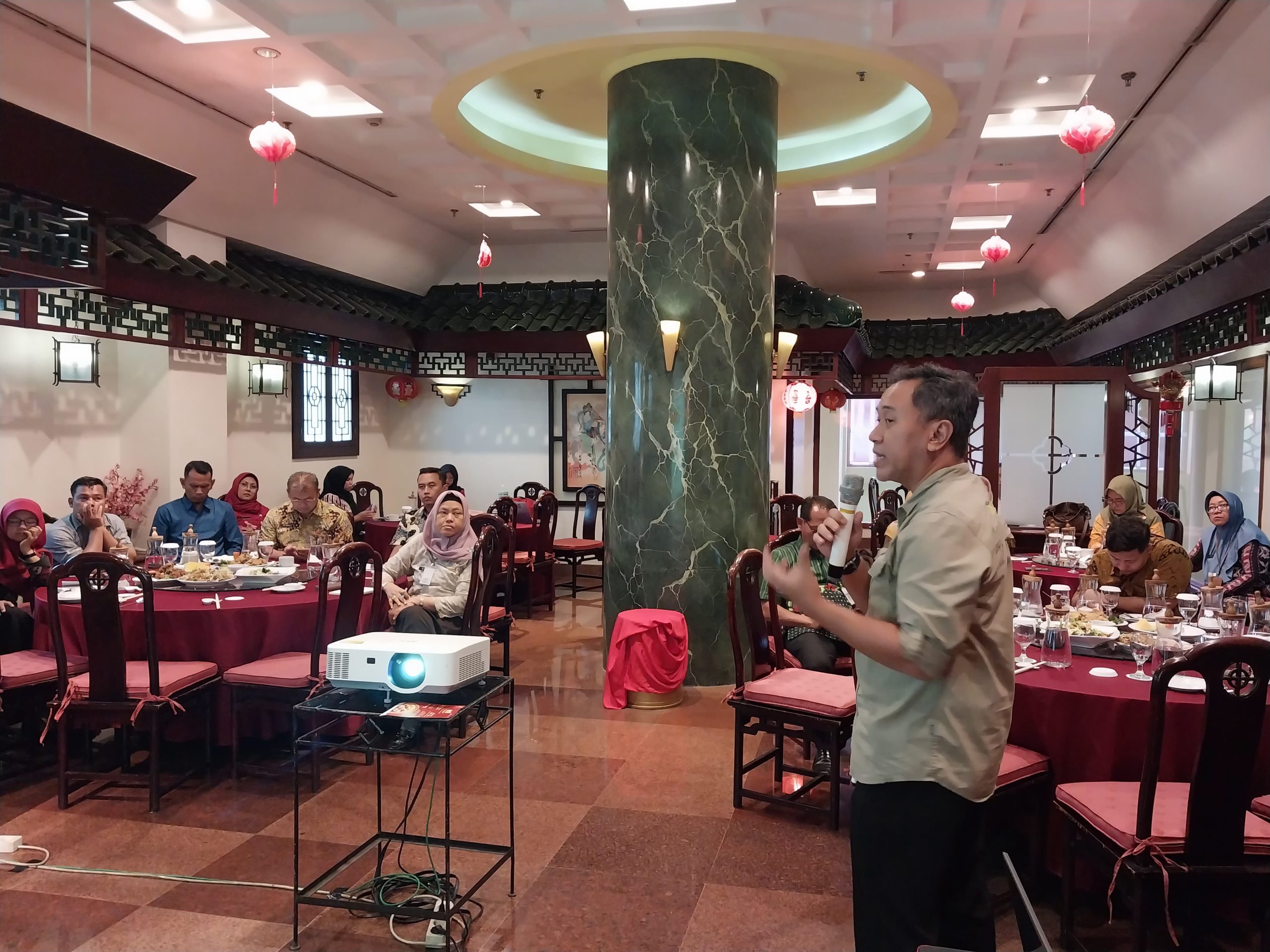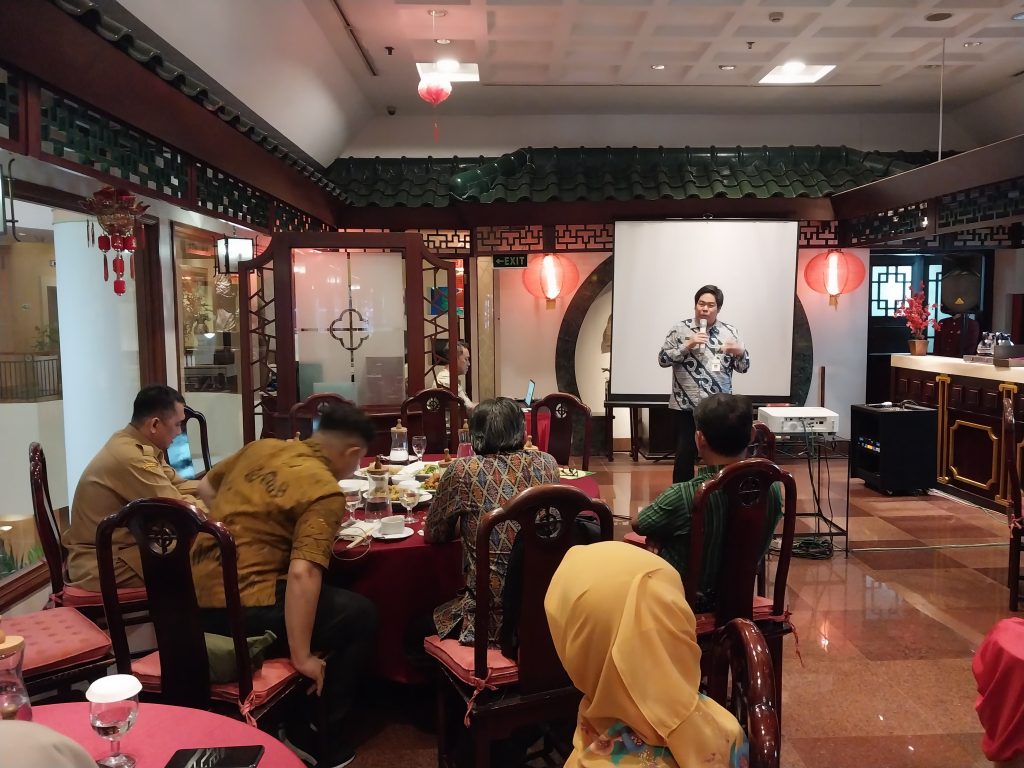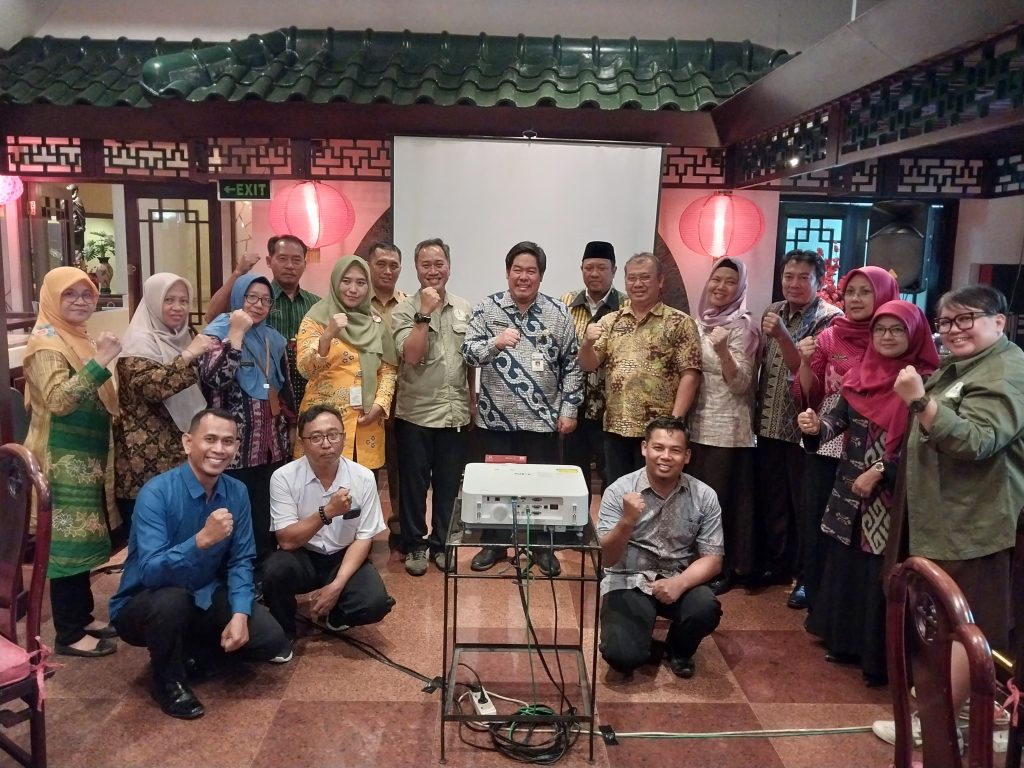Green Cooperative Awareness for Cooperative Service throughout Central Java

Rumah Energi met with 15 Cooperative Offices at the district and city levels throughout Central Java to implement the Green Cooperative Policy Readiness project. This meeting aimed to open a discussion forum and gather information and input related to the challenges of the Cooperative Offices at the district and city levels in implementing adaptation and mitigation to climate change. It also sought input regarding strengthening the draft law on cooperative governance that will be proposed to the Ministry of Cooperatives in this new period.
The discussion began by receiving a series of information from the Office Representatives regarding the impacts experienced by cooperatives and their members related to climate change such as floods and droughts. Each representative stated that these impacts resulted in fatal losses for farmers and ranchers as well as other business actors, but until now they have not been exposed to how to mitigate and adapt to climate change. An example of the negative impacts received by the community, especially cooperative members, is the decline in agricultural or livestock production which results in difficulty in paying loans to the cooperative, as well as the decline in the quality of life and welfare of farmers and ranchers.
One of the representatives of the Pati Cooperative Service, Dewi, informed that several savings and loan cooperatives and the real sector have implemented environmentally friendly principles through good waste management, but cooperatives and the service have not been able to measure and document properly for reporting cooperatives that implement the expected green cooperative concept.

The discussion process was then continued by presenting other findings such as the absence of regular assistance to real sector cooperatives the difficulty of finding competent mentors or facilitators for assistance to mid-level real sector cooperatives, and the absence of laws and regulations regarding the protection of members and their businesses. In addition, the lack of a clear definition and regulations regarding the implementation of Green Cooperatives at the Ministry of Cooperatives level that can encourage cooperative services to be implemented at the regional level has an impact on the lack of support for cooperatives to implement environmentally friendly values and the principles of Environment, Social, and Governance (ESG).
Green Cooperative Policy Readiness Project Manager, Bren Wiratsongko explained that Rumah Energi has made recommendations regarding Green Cooperatives as part of the government’s support for implementing a Green Economy through two documents, namely the Policy Analysis Book and the Green Cooperative Guidelines Book to the Ministry of Cooperatives in 2023, with the hope that its dissemination will be continued by the ministry. Input from the district and city cooperative offices regarding the need for institutional regulations in the form of laws, institutional governance, protection of cooperatives and members, and dissemination of the Green Cooperative concept will be developed and analyzed, then become part of Rumah Energi’s recommendations to be submitted to the Ministry of Cooperatives.

Written by: Jenni Irene Connie
Edited by: Fauzan Ramadhan

